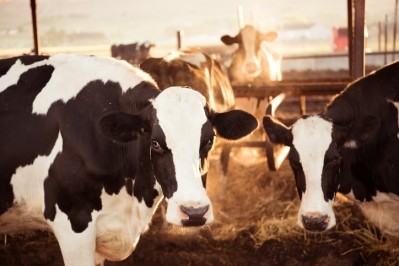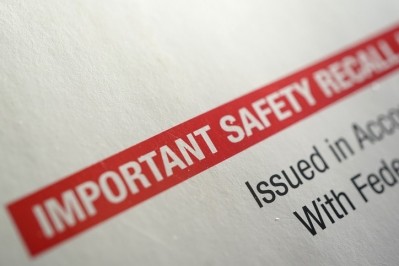FoodChain ID boosts its feed safety certification portfolio

The Iowa, US-headquartered organization has been approved as a certification body for GMP+ Feed Safety Assurance (FSA) certification, enabling it to conduct global, independent audits for GMP+ FSA across all species of animal agriculture.
The addition of GMP+ FSA certification complements its existing portfolio of feed certifications, such as FAMI-QS and FCA.
The GMP+ FSA standard is managed by GMP+ International and recognized worldwide for its rigorous feed safety requirements based on ISO 22000, HACCP, and feed industry best practices. GMP+ FSA certification covers critical links in the feed supply chain, including feed production, distribution, transportation, storage, and monitoring.
We ran a Q&A with Chetan Parmar, senior vice president for technical services in Europe and Asia at FoodChain ID, to find out more.
FeedNavigator: Can you explain what GMP+ FSA certification entails and how it differs from other feed safety certifications?
Chetan Parmar: GMP+ was set up by the Dutch feed industry in 1992 as a certification scheme for feed safety. Today more than 19,000 companies in 90 countries participate in GMP+. The scheme covers the entire feed supply chain ‒ production, processing, trade, shipping, transport, and storage. GMP+ also maintains standards for testing regarding mycotoxins, pesticides, and salmonella. In addition, GMP+ certified companies are required to work with GMP+ certified laboratories. The global reach sets the scheme apart from other certifications.
FEN: What prompted FoodChain ID to seek approval as a certification body for GMP+ FSA certification, and how does this fit into the company's overall strategy and mission?
CP: FoodChain ID’s mission is to help keep the food supply safe and transparent. Our commitment to a safe food supply extends to the source of food on farms. By supporting animal livestock producers with feed safety certification, we are answering a critical market need for confidence and accountability in a safe food supply chain. FoodChain ID serves over 30,000 customers in over 100 countries, so our customers need a globally recognized feed certification, leading to our interest in GMP+ FSA.
FEN: How will FoodChain ID conduct global, independent audits for GMP+ FSA certification across all species of animal agriculture?
CP: As an approved and accredited certification body, FoodChain ID selects trained auditors to evaluate compliance to GMP+ FSA requirements. The auditors are trained for technical expertise and impartiality. Certification confirms compliance of the certified companies for their role in the feed supply chain.
FEN: Could you provide examples of specific feed safety requirements covered by GMP+ FSA certification, and how these requirements contribute to ensuring the safety and integrity of the feed supply chain?
CP: The standard is based on ISO 22000 and HACCP principles. A GMP+ certified company must comply with the applicable feed legislation both in the country where it is located and where the feed is marketed. GMP+ FSA requires that a Feed Safety Management System (FSMS) be established with oversight by company leadership. One example of a requirement is that a GMP+ certified company must establish and apply criteria to external providers of processes, products and services which can have an impact on feed safety.
In addition, traceability is mandated for all inputs that could affect feed safety all stages of production, processing, and distribution. The traceability system must track material from the suppliers to delivery of the product.

FEN: How does GMP+ FSA certification complement FoodChain ID's existing portfolio of feed certifications, such as FAMI-QS and FCA? Are there synergies or overlaps between these different certification programs?
CP: In adding the GMP+ FSA scheme to its portfolio, FoodChain ID offers a comprehensive approach to its partnership with the feed sector. FAMI-QS is a scheme dedicated to feed specialty ingredients, such as additives, with a growing network of certified companies. FAMI-QS is particularly recognized in Asia. Feed Chain Alliance (FCA) is focused on the production and transportation of feed products (feedstuff, premixes, additives, compound feed) and is usually selected by companies working only in the feed sector.
If a manufacturing plant produces product for both human food and animal feed, GMP+ is often selected for feed and FSSC 22000 for the human food product since the combination of both schemes can be done under certain conditions. FSSC 22000 is a certification standard offered by FoodChain ID.
FEN: What benefits do feed industry participants gain from achieving GMP+ FSA certification, both in terms of regulatory compliance and market competitiveness?
CP: The GMP+ FSA scheme is compatible with local and national legislation. By meeting GMP+ requirements, certified companies are assured to have products compliant with their markets. In locations where legislation is less strict or absent, the scheme must still be followed by GMP+ certified companies. In those instances, the high standard of GMP+ certification distinguishes companies in the market.
GMP+ certified companies often choose to conduct business with other GMP+ certified companies. Because all GMP+ certified companies meet the same exacting standards and apply consistent principles, it creates trust among certified companies.
FEN: Are there training or consulting services available to assist with compliance with the GMP+ FSA certification process?
CP: GMP+ International maintains the GMP+ Academy for training services.
FEN: How does FoodChain ID ensure the impartiality and integrity of its certification processes, particularly when conducting audits for GMP+ FSA certification?
CP: The auditors are trained for technical expertise and impartiality. FoodChain ID is subject to accreditation as well. A certification body must have an accredited food/feed quality management system based on ISO/IEC17021 and ISO22003-1.
FEN: What impact do you anticipate GMP+ FSA certification having on the global feed and farming community, and how does FoodChain ID plan to contribute to improving feed safety standards on a broader scale?
CP: GMP+ International states that GMP+ is the world’s largest scheme supporting safe and sustainable animal feed. The organization’s mission is to enable every company in the feed chain to take responsibility for working in a safe and sustainable way. As stated above, currently 19,000 certified companies in 90 countries participate in GMP+ certification. However, given the global market size of the meat, poultry, aquaculture, and dairy industries (ca. $3T), FoodChain ID believes significant opportunities remain to support these important sectors with safe feed production through certification.
FoodChain ID already supports the feed supply chain with sustainability certification schemes, such as Proterra, as well as more targeted needs around non-GMO certification and testing, including standards such as Europe Soy and Ohne Gentechnik (VLOG).
In addition, through FoodChain ID’s digital solutions, we are also able to support the feed sector with our growing regulatory content and data for feed additives and feed contaminants. Together with our capabilities in the certification and testing services, we believe we are well-positioned to support the feed industry.
FEN: Looking ahead, are there any plans for FoodChain ID to expand its certification services or pursue additional certifications in the feed safety and food supply chain space?
CP: Over recent years, FoodChain ID has expanded the scope of feed certification services with FCA, FAMI-QS and now GMP+ FSA. We will continue to look for ways to make the certification process more efficient for our customers by conducting combining audits, when possible, for their differing needs. For example, and as noted above, in facilities where our customers produce ingredients for both the animal feed and human food industries, we are pursuing combined audits that lead to efficiencies in the certification process.
In the past year we have made significant investments to support the feed and food supply chain with a range of sustainability services, including assessing Scope 3 emissions through life cycle assessments and product environmental footprints. We have introduced a range of certification services to support regenerative agriculture. For clients seeking compliance with the EU Deforestation Regulation (EUDR), we offer due diligence and verification services. We are also partnering with third parties to support carbon insetting (and offsetting) strategies as our clients decarbonize their supply chain in order to meet their science-based sustainability targets.















